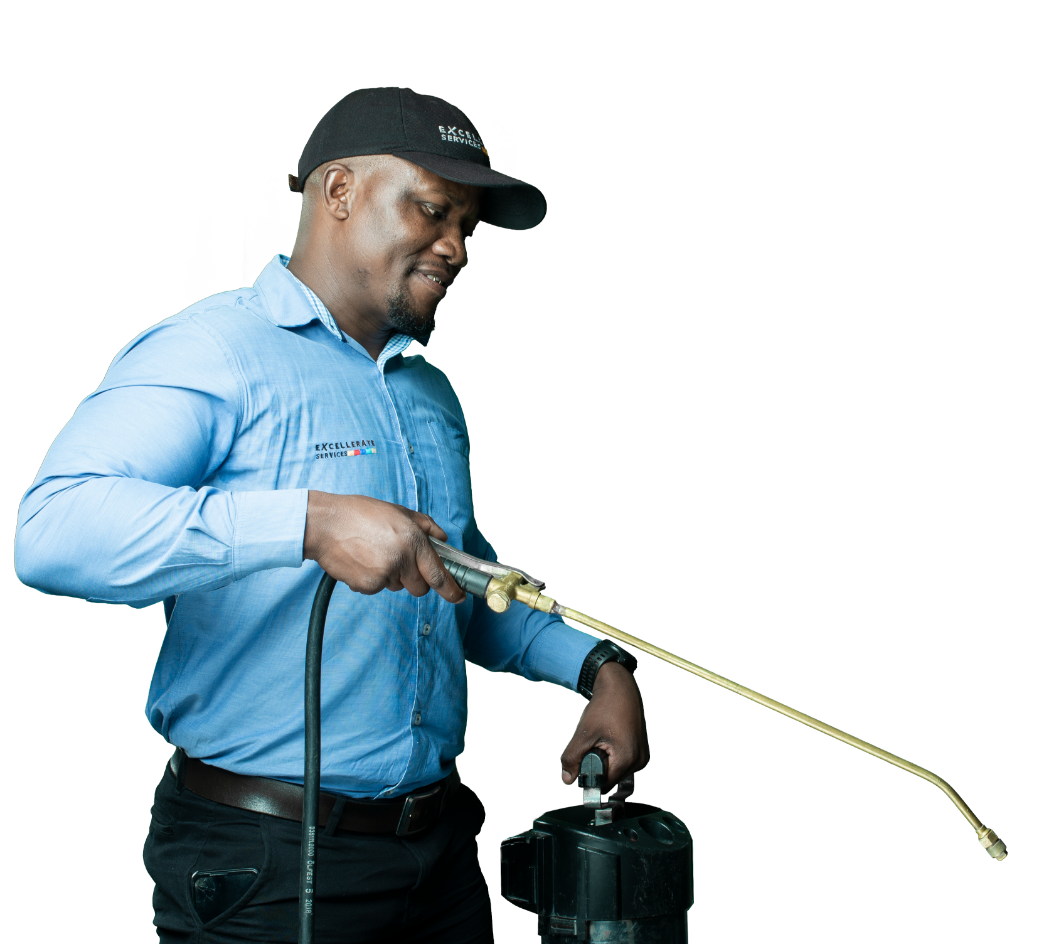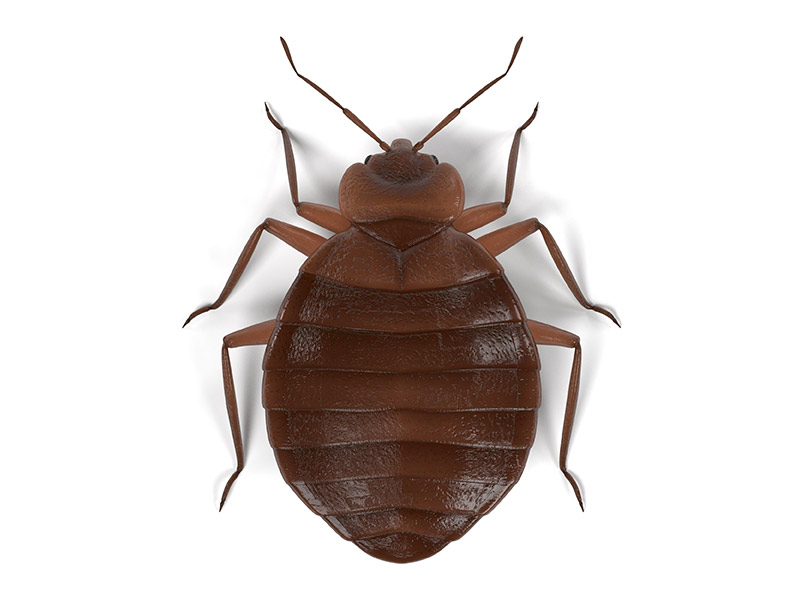Prevent infestations with expert Pest Control in Port Charlotte services.
Checking Out Ingenious Techniques and Products for Effective Bug Control
The landscape of pest control is advancing, noted by the development of ingenious techniques and products designed to improve efficiency and sustainability. From smart traps equipped with sophisticated tracking systems to organic techniques that use all-natural predators, these advancements offer a standard change in how we approach pest administration. Additionally, eco-friendly chemical choices and pheromone interruption strategies supply targeted options that straighten with environmental stewardship. As the industry grapples with these advancements, a closer examination exposes not only their effects yet also the prospective challenges that may occur in their execution.
Smart Traps and Keeping An Eye On Equipments
Exactly how can modern innovation enhance parasite management? One significant development is the advancement of smart catches and checking systems, which provide real-time data and analytics for efficient pest control. These systems utilize sensing units and wireless modern technology to identify pest task, signaling property managers and pest control specialists to invasions before they rise.
Smart catches are outfitted with features such as lure terminals that bring in bugs and catch them successfully. These catches can be kept an eye on from another location, permitting prompt interventions and reducing the need for extensive chemical applications. The combination of equipment knowing algorithms allows these systems to differentiate between target bugs and non-target species, improving the precision of bug control actions.
In addition, the data collected from clever traps can be examined to recognize patterns in bug habits and environmental factors contributing to problems (Pest Control in Port Charlotte). This details is important for establishing targeted pest administration methods tailored to certain settings. By embracing wise traps and checking systems, insect control experts can enhance their operational efficiency and decrease the eco-friendly influence of bug administration, eventually causing more secure and much more sustainable methods in the market
Biological Parasite Control Approaches
Making use of natural killers and bloodsuckers, organic insect control techniques supply an ecologically friendly choice to chemical treatments. This technique includes the intro or enhancement of certain organisms that can naturally manage pest populations, therefore decreasing reliance on artificial pesticides. Typical instances consist of making use of ladybugs to manage aphid infestations and parasitic wasps to target caterpillars.

Organic control can be categorized right into 3 primary strategies: classical, augmentative, and conservation. Classic biological control entails importing natural enemies from the parasite's indigenous environment, while augmentative control entails increasing the population of existing all-natural enemies through launches. Conservation strategies focus on producing problems that support these beneficial organisms in the environment.
It commonly requires a thorough analysis of bug dynamics and the life cycles of both the insects and their all-natural enemies. As awareness of environmental concerns grows, organic parasite control methods are significantly acknowledged for their sustainable role in integrated bug monitoring programs.
Eco-Friendly Chemical Alternatives
Eco-friendly chemical choices provide a sensible remedy for pest administration that reduces environmental impact while efficiently managing pest populations. These options are originated from all-natural sources and are carefully developed to target certain bugs without hurting valuable organisms, making them a vital component of lasting pest control approaches.
Among the most effective green choices are plant-based insecticides, such as neem oil and pyrethrin, which are stemmed from the seeds and blossoms of numerous plants. These materials interrupt the life process of insects, reducing their populaces without the harmful impacts connected with traditional chemicals - Pest Control in Port Charlotte. In addition, vital oils like pepper mint and clove oil display repellent residential or commercial properties, even more enhancing their energy in pest administration

Additionally, eco-friendly chemical options commonly damage down quicker in the environment, visite site reducing the danger of soil and water contamination. This characteristic aligns with the increasing consumer need for sustainable methods in farming and city bug control. As study continues to development, the advancement of cutting-edge green formulas will further enhance efficiency and expand application locations, allowing pest administration professionals to adopt greener, much more accountable methods in their methods while protecting human health and the atmosphere.
Scent Disruption Techniques
Another cutting-edge method in lasting pest administration is the use of pheromone disruption strategies. These techniques make use of the natural chemical signals, or scents, that bugs make use of for interaction, specifically in breeding habits. By interrupting these signals, parasite populaces can be effectively managed without turning to unsafe chemicals.
Scent traps are generally utilized in this strategy. These catches utilize artificial versions of insect pheromones to entice male insects, thus decreasing their capability to find ladies and duplicate. With time, this can cause a substantial decline in pest populations. Additionally, the launch of repellent scents can create confusion amongst bugs, even more preventing their mating procedures - Pest Control in Port Charlotte.

Integrated Insect Monitoring Techniques
Efficient parasite control often requires an extensive approach, and Integrated Pest Management (IPM) techniques supply a framework for attaining this objective. IPM incorporates numerous management techniques to lessen bug populations while minimizing dependence on their explanation chemical pesticides. This multifaceted method begins with thorough tracking and identification of parasites, enabling for targeted interventions based upon particular insect pressures.
Cultural techniques, such as crop rotation and sanitation, play a crucial role in preventing bug facility. Biological controls, including natural killers and parasitoids, are employed to maintain bug populaces at workable degrees. When needed, discerning chemical therapies are applied, emphasizing lower poisoning to non-target species and the setting.
By utilizing this alternative approach, IPM not just boosts parasite control effectiveness yet also adds to long-term eco-friendly balance. Ultimately, Integrated Insect Administration stands for a forward-thinking option that lines up farming efficiency with ecological stewardship, making it crucial in contemporary bug control techniques.

Final Thought
In go final thought, the combination of cutting-edge techniques and items for efficient insect control stands for a significant improvement in lasting parasite monitoring. Smart traps and keeping an eye on systems, organic insect control approaches, environmentally friendly chemical options, and scent interruption strategies collectively boost the performance of bug monitoring strategies.